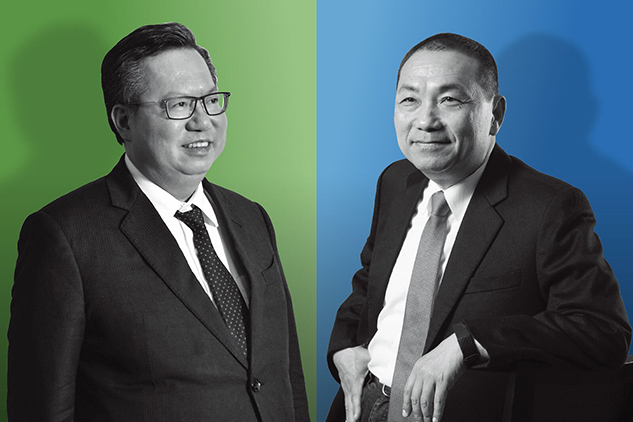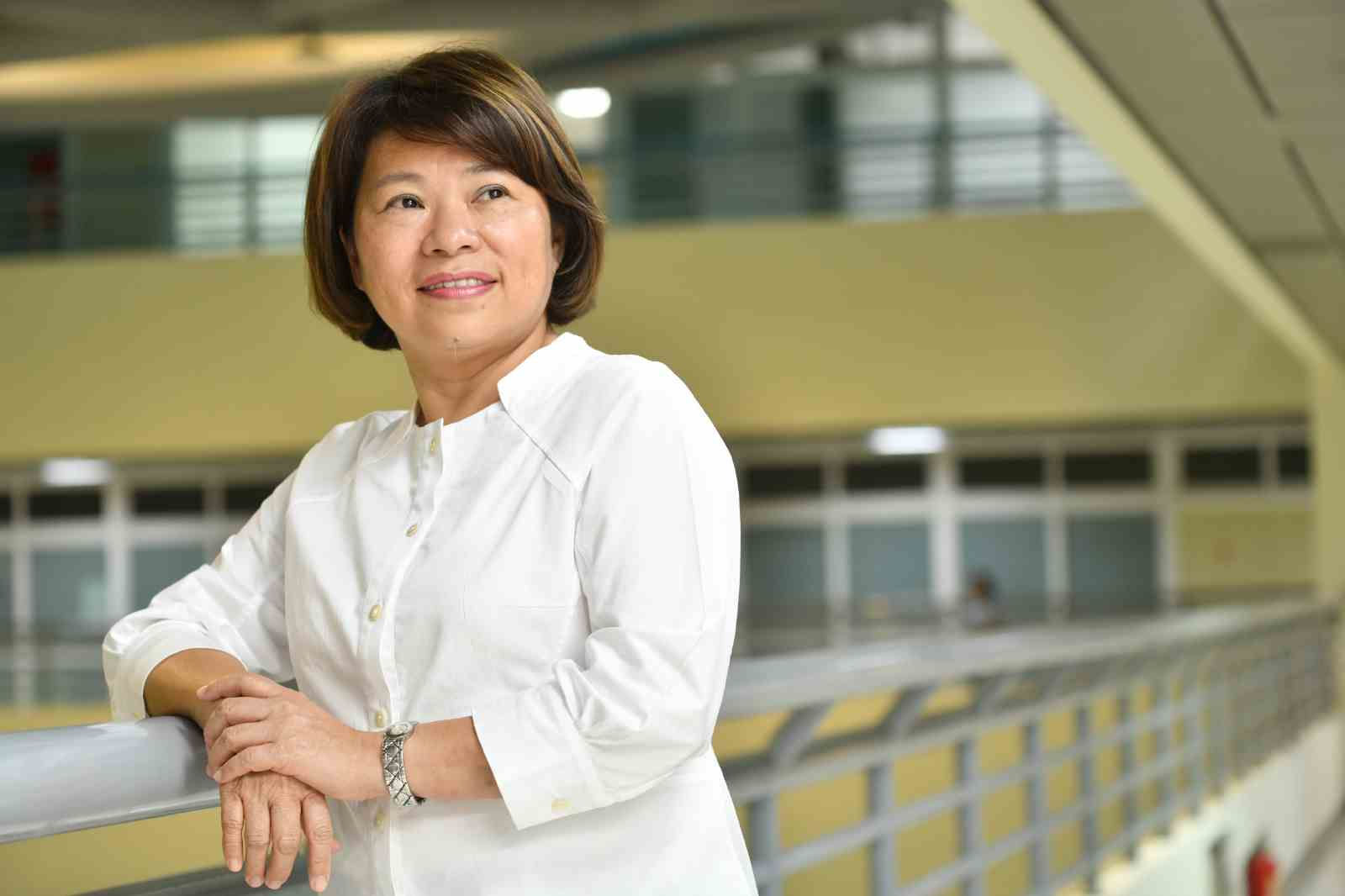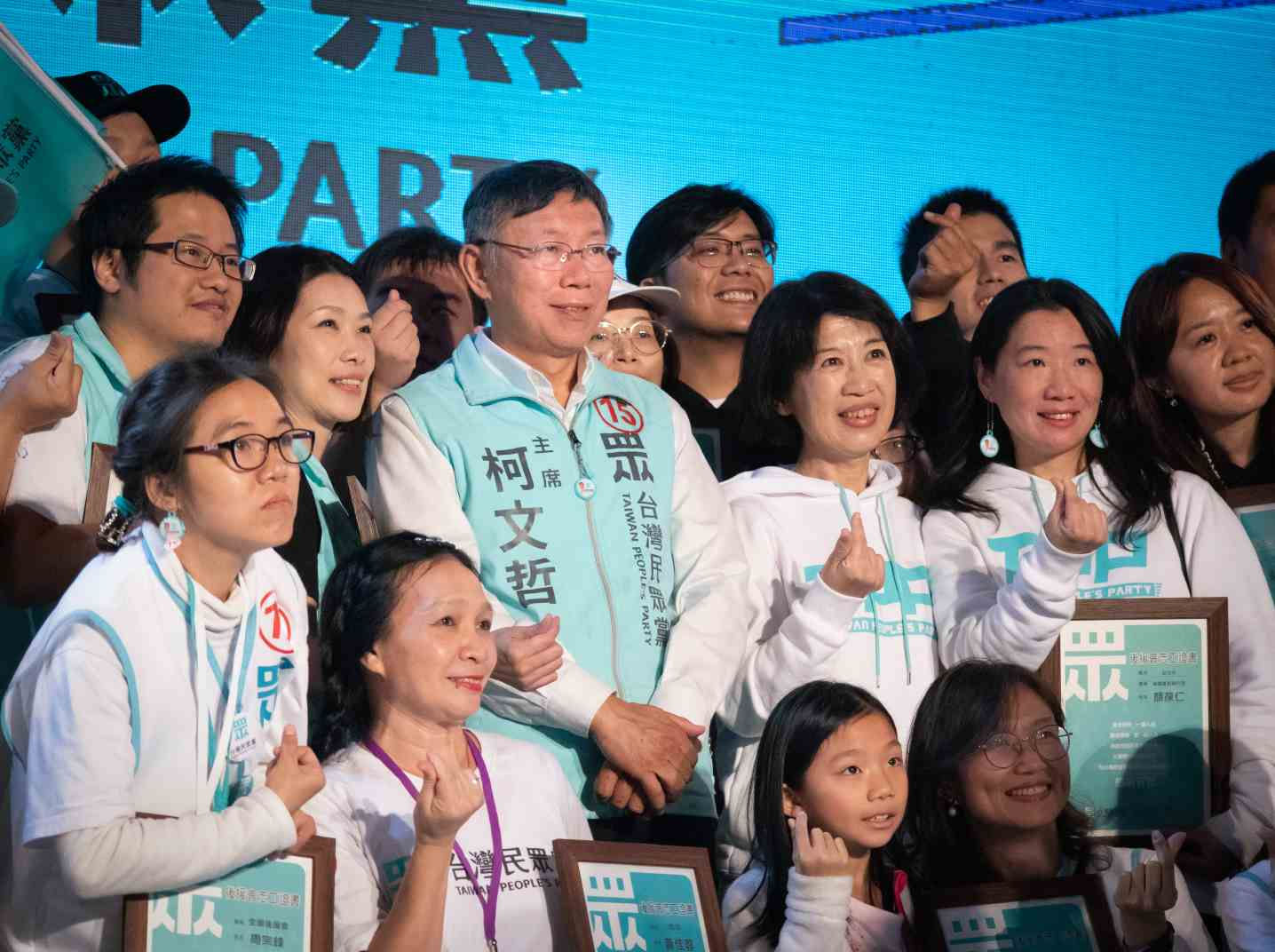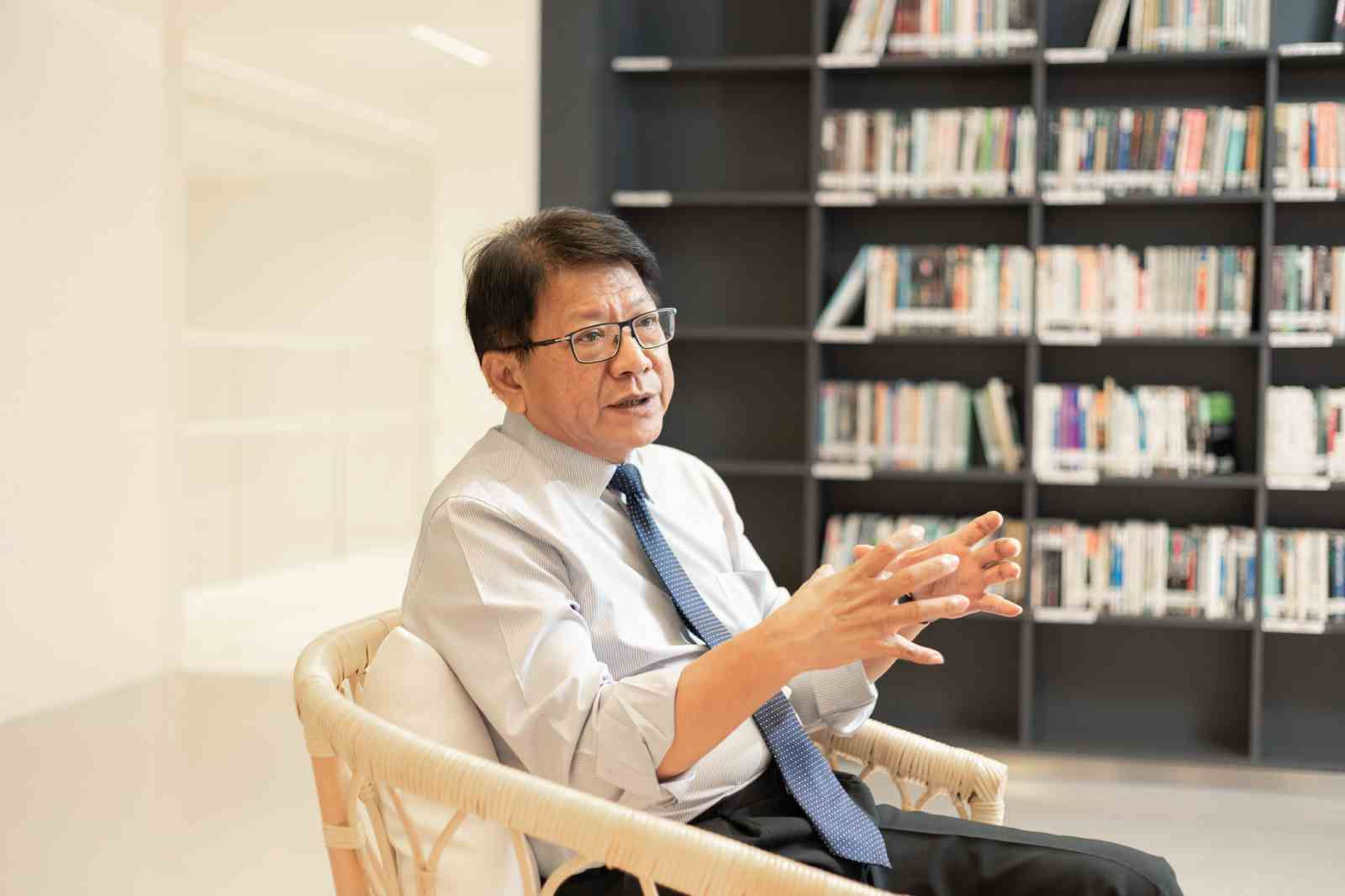Local Leaders Approval Survey Hints at Taiwan’s Future

Source:Kuo-Tai Liu, Ming-Tang Huang
Pan Men-an, Magistrate of Pingtung County, once again came in first in CommonWealth Magazine’s annual approval survey of Taiwan’s local leaders. Hou Yu-ih, Mayor of New Taipei, and Cheng Wen-tsan, Mayor of Taoyuan, came in at numbers two and three, respectively. Keep a close eye on the rising stars of Taiwan’s two dominant political camps. How did they win the respect of experts and the love of over 80% of their electorate?
Views
Local Leaders Approval Survey Hints at Taiwan’s Future
By Rebecca Lin, Li Hsun TsaiFrom CommonWealth Magazine (vol. 706 )
It has not been too long since the hullabaloo of Taiwan’s last presidential election. Incumbent Tsai Ing-wen has barely begun her second term, but the voters are already wondering who her successor will be.
A look at CommonWealth Magazine’s annual approval survey of Taiwan’s local leaders may provide a clue. The two major political parties are already gearing up for the next big showdown.
“It’s like the midterms; a chance for local leaders to reflect on what they’ve done, and whether the voters are buying in.” says Yu-tzung Chang (張佑宗), Chairperson of the Department of Political Science and Associate Dean of the College of Social Science at National Taiwan University. If the electorate is discontent, an elected official would do well to wise up. Once the populace gets a bad taste in their mouths, there may be no going back.
The survey conducted by CommonWealth reveals a new trend in popular opinion. Social media and catchy slogans will only get you so far. At the end of the day, people prefer someone who puts people’s interests first, a public servant who is ready to serve--like the staff in a convenience store, standing at the ready 24-7.
Our first revelation: A statesman who puts country before party is more likely to win hearts and minds.
KMT’s Hou Yu-ih and DPP’s Cheng Wen-tsan: Hard Work Wins Over Wary Hearts
This year’s survey showed a surprisingly high level of satisfaction in our elected officials’ overall performance. Ten local leaders won an approval rating of over 80%. In past polls, it was rare to see the approval rating for anyone’s overall performance surpass 80%. But this year, Pingtung Magistrate Pan Men-an, New Taipei Mayor Hou Yu-ih, Taoyuan Mayor Cheng Wen-tsan, and Hsinchu Mayor Lin Chih-chien all had approval ratings of over 85%.

“This means that, no matter which political party they are from, they won the approval of voters from the other camp as well. Very few people found fault with them,” says Yu-tzung Chang. He points out how unfathomable this is, especially in the KMT strongholds of Taoyuan and Hsinchu; and also in New Taipei, where the electorate is split right down the middle.
Hou Yu-ih of New Taipei and Cheng Wen-tsan of Taoyuan represent the rising stars of the KMT and the DPP, respectively. What they have in common is their willingness to prioritize city governance over party politics.
More than once, Hou has refused to throw his weight behind KMT electoral efforts, citing his city as top priority. Cheng also rebuffed efforts to make him head of the DPP. “The people of Taiwan are fed up with feuds between political parties. These two made it clear they were here to do their mayoral jobs. They steered clear of party politics,” observes Chang.
In addition, they work like 7-Elevens: Day or night, they remain humbly at your service.
“My cell phone is my mobile office; I am never unavailable. My car is my command center on wheels.” Hou believes that actions speak louder than words. Not only is he always in the thick of things, a downpour in the middle of the night may be enough to keep him awake, checking precipitation reports. “If you are focused, your staff takes notice. They know what you are concerned about, and they will follow your lead.”
Though the media have dubbed them “future successors”, success is far from guaranteed. “Hou has yet to win a second term. He needs to look no further than his own party to see the fate that befell Eric Chu and Han Kuo-yu. There is a palpable risk in declaring your ambition too early,” notes Lu-huei Chen (陳陸輝), Research Fellow at the Election Study Center in National Chengchi University.
As for Cheng, he needs to exhibit charisma and leadership if he wants to chase the crown. More importantly, he needs to demonstrate vision. “This goes beyond networking and building connections,” says Chen.
The second thing that the survey discovered was that local leaders from the green camp are making noticeable strides in their approval ratings.
Even though politicians from both the blue and green camps got five spots in the top ten, DPP candidates are making headway in the rankings. Pan Men-an, Magistrate of Pingtung County, came in first for two consecutive years. Experts and the electorate commend him for his excellent governance of Taiwan’s southernmost county. Taoyuan Mayor Cheng Wen-tsan also ascended to number three, from number four in 2019. Hsinchu Mayor Lin Chih-chien went from number six to number four.
Huang Wei-cher: The Biggest Step Forward
DPP Ascension Spells Trouble for KMT Diehards
Of all the progress that was made, no one can hold a candle to Huang Wei-cher, Mayor of Tainan. He went from number fourteen in 2019 to number seven. Huang got off to a bad start; he won the mayoral seat with only 38% of the votes, a national low. But in two years, he has apparently been able to prove himself, and his star is rising fast.
The crux of the matter is that Huang was able to wrap up projects initiated by his predecessor, the current vice president Lai Ching-te. His achievements include the Tainan Art Museum and converting the defunct China-Town Mall into the Tainan Spring, showing the country the new face of Tainan.
“There are those who say that in recent years, Huang Wei-cher is the mayor who has shown his face the most,” says Tainan City Councilor Chiu Li-li.
Not only does Huang frequent the frontlines, he also realized that the Shalun Smart Green Energy Science City and the Southern Taiwan Science Park, ostensibly the twin economic engines of Tainan, could not pull their weight immediately. So he shifted his focus to agricultural marketing. Every week, he visits different districts to break bread with farmers, whether it’s fishing for milkfish or cooking seafood congee.
The third thing to note is that alarms are blaring for cities and counties run by KMT politicians.
Besides New Taipei’s Hou, who has always kept a respectable distance from the blue camp, the other KMT leaders in the top ten include Liu Cheng-ying, Magistrate of Lienchiang County; Hsu Chen-wei, Magistrate of Hualien County; and Rao Ching-ling, Magistrate of Taitung County. All three of them represent traditional KMT strongholds. The only area that abandoned DPP leadership and returned to the blue camp is Chiayi City and its mayor, Huang Min-hui.

But even in these regions where the blue camp still holds power, unrest is growing among the electorate, and it shows in their leaders’ approval ratings. Liu fell to number five from number two in 2019. Hsu went from number three to six. Rao dropped like a stone from number five to last in the top ten list.
This phenomenon is not restricted to KMT loyalists on the east coast and the offshore islands. Even in densely populated areas, blue camp candidates are languishing. Examples include Lu Shiow-yen, Mayor of Taichung, and Wang Huei-mei, Magistrate of Changhua County.
“If you compare the KMT’s two ‘vassal cities’, New Taipei and Taichung, Lu is obviously lagging behind,” says Tzu Chiao Su (蘇子喬), Assistant Professor at the Department of Public Administration and Management at the Chinese Culture University.
But when they were asked the question: “If it were up to you, where would you like to live in Taiwan?” 80.1% of Taichung citizens say they would stay in Taichung. That’s higher than any other city or county.
“What this tells us is the people of Taichung are proud of their city,” Su says. If most of Taichung’s citizens wish to stay put, it may be a boon for Lu Shiow-yen, or it may be an albatross around her neck. Because the people are clearly not her biggest fans. Air pollution and exorbitant property prices have always been obstacles faced by Taichung’s leaders.
Our last observation is the "white tide” that once swept independent candidates into office may be no more.
Last year, when Taipei Mayor Ko Wen-je spoke to CommonWealth Magazine, he had this to say about his sagging poll numbers: “I don’t care. I know they will surge again next year.”
Bottom of the Barrel: Ko Wen-je Illustrates Party Over City
Ko apparently did not foresee that his ranking would sink even lower this year, from number twenty to dead last in all the country (Kaohsiung is not ranked due to this year’s mayoral by-election). Ko’s approval rating is only 49.9, worse than in 2019.
In the past, Taiwan’s voters became fed up with the endless feuding between the blue and green camps. As the independent candidate, Ko rode a “white tide” of bipartisan support to victory. But now he is losing ground because he has not toed the line between party and city. After establishing the Taiwan People's Party, Ko has focused more on being the nascent party’s chairman than the city’s mayor.
“He may be mayor, but all he talks about now is political parties. His mind is not on his work. Construction on the Taipei Dome was suspended, and then it was resumed. His policies do nothing but court controversy,” says Su.
It is evident that the people of Taipei are disappointed. Ko’s political sway and subsequent advancement are in jeopardy. Even his handpicked successor, Deputy Mayor Huang Shan-shan, may not escape the undertow.

In the past, it was taken for granted that local leaders are supposed to be “the adult in the room”. But people are now holding their elected officials to higher standards.
“Smooth roads, bright lights, a working sewage system.” These are just the start. The public servant’s track record must keep up with that of their rivals. “In the information age, people will always know if someone else is outperforming you,” says Yu-tzung Chang.
It’s akin to running a marathon for four years straight. Failure waits for the slightest lapse in concentration.
Pan Men-an: The Golden Boy
The three regions with the highest poll numbers stand as shining examples of truly good governance.
But a glance at the performance of these three local leaders shows that popular opinion is not always in sync with what experts say, despite the fact that the latter should know more about local policies.
“Voters are easily beguiled by bread and circuses. But experts look at the bigger picture,” says Chih-Cheng Meng (蒙志成), Associate Professor at the Department of Political Science at National Cheng Kung University. During the first term, politicians often sketch out ways to quickly show their quality; it is more propaganda than policymaking. Only when they win reelection does the real work begin.
Yang Chih-pin (楊志彬), Secretary-General of the National Association for the Promotion of Community Universities (社區大學全國促進會), points out that this year, many experts noticed that local leaders are focusing more on packaging and marketing. In contrast, experts are interested in the county or city’s competitive edge, and whether problems are actually being solved.
Pan Men-an, Hou Yu-ih, and Cheng Wen-tsan made it into the top three due to both high poll numbers and the recognition of policy experts. They not only have sterling reputations, they also put in the work to get the job done.

Pingtung County and Taoyuan City have always been winners in our annual opinion polls. Yang says experts commend the two statesmen for achieving regional integration and harmony across different ethnic groups. They also distributed social resources more evenly across their electorate.
“Hou is still in his first term, but his performance stands out,” says Tzu Chiao Su.
Amid the global pandemic, people need a leader with a clear goal and the determination to take necessary action.
Lu-huei Chen points out that, before becoming mayor, Hou served as Commissioner of the Criminal Investigation Bureau and Director-General of the National Police Agency. Crisis management comes naturally to such a man, perhaps more so than someone with a more sedate background. He has demonstrated this quality in the fight against COVID-19.
Hou conducted drills to prepare for every possible scenario. He also worked closely with the central government. His electorate took notice.
In comparison, while some officials enjoyed high poll numbers, experts took a much harsher view of their administration.
“I’m not saying Huang Wei-cher doesn’t work hard,” one expert says, before going on to point out that Huang places too much emphasis on propaganda and flash-in-the-pan results. Whenever one of his proposals ran into a gridlock, Huang would just shelve it indefinitely. This is no good for long-term governance, and it shows a lack of vision for the future of the city.
The race between Taiwan’s cities is a contest without an end. More than anyone else, magistrates and mayors should appreciate this.
The people who raised you up can cast you down. Those you serve will have the final say on how well you have served, as well as whether you should continue to serve.
Have you read?
♦ Elevated by Kaohsiung, Brought Low by Kaohsiung: Behind the Han Kuo-yu Recall Vote
♦ Beyond Relief Packages, a Chance for Taiwan to Transform into a Tourism Hub
♦ CommonWealth 2019 City Happiness Survey: Taiwan’s Capital Scores Top Across the Board
Translated by Jack Chou
Edited by TC Lin
Uploaded by Judy Lu






